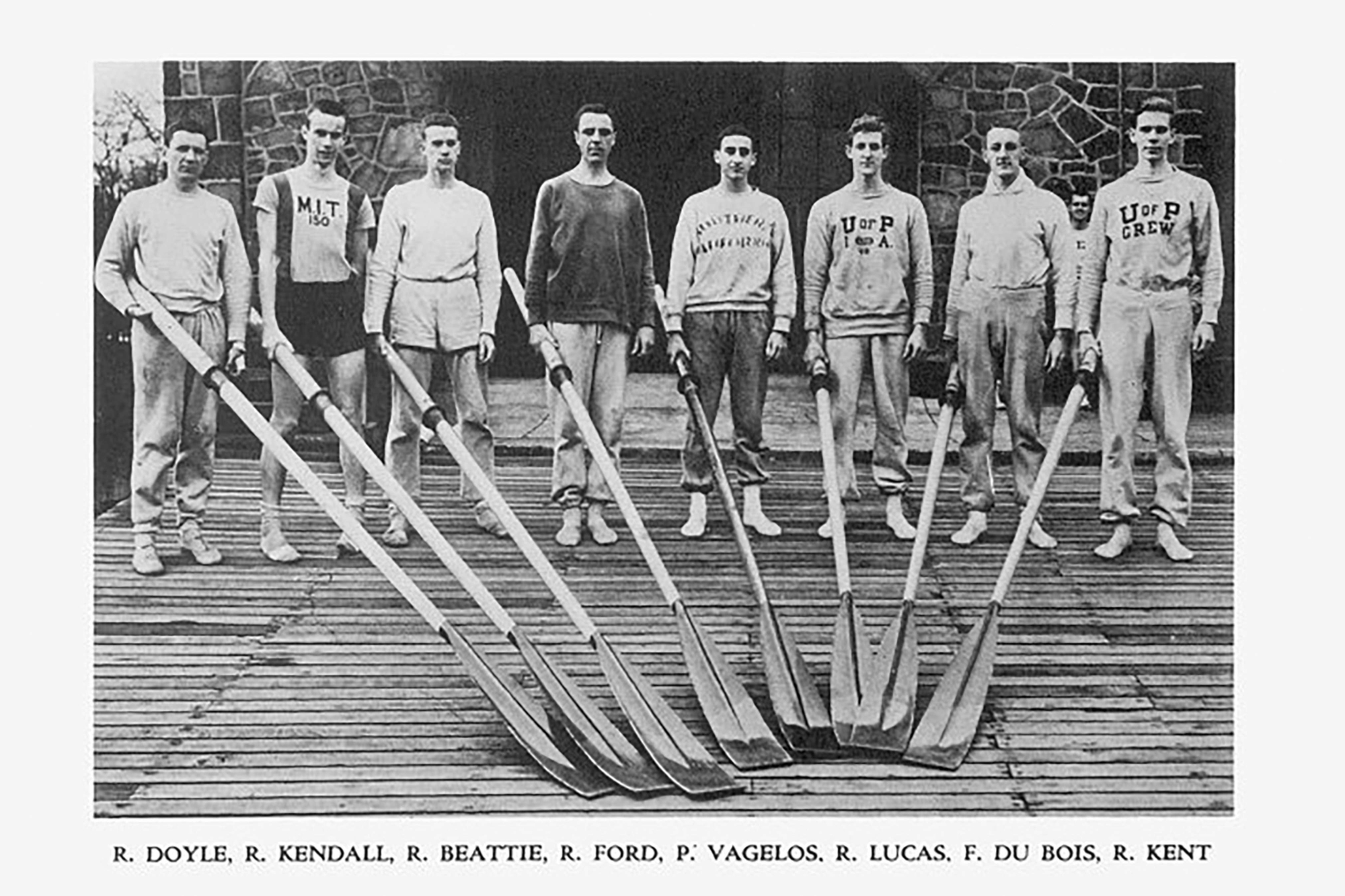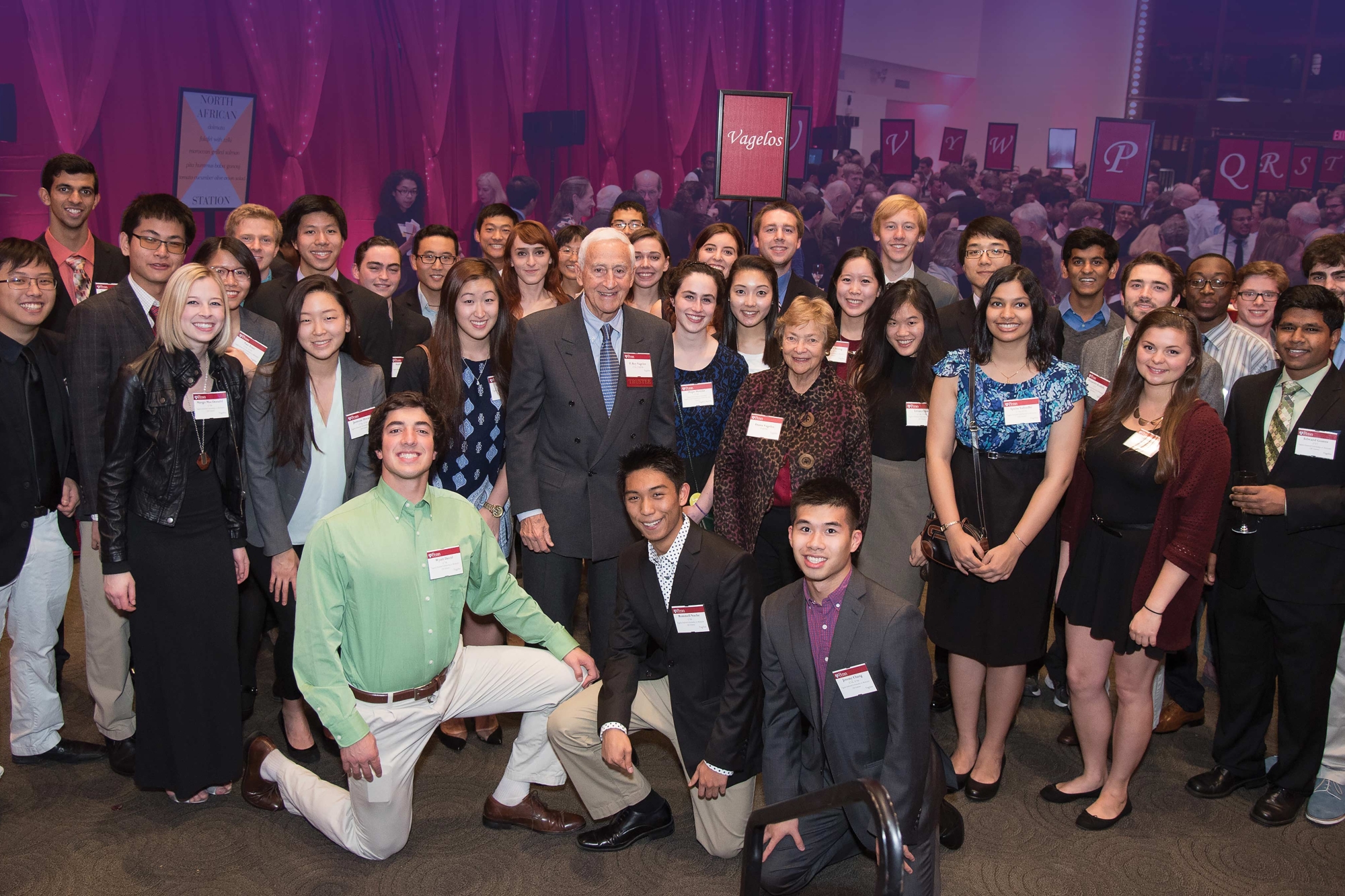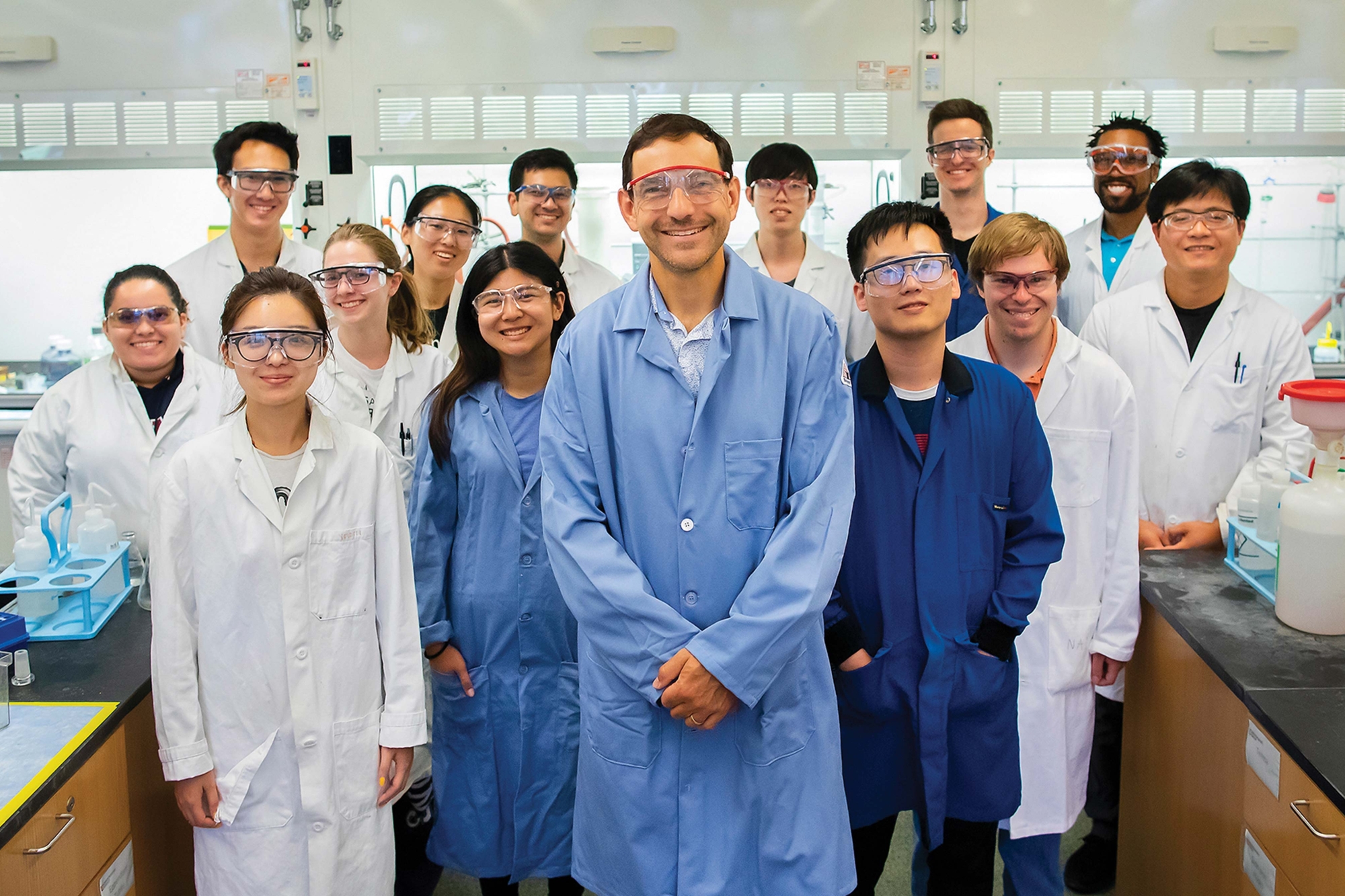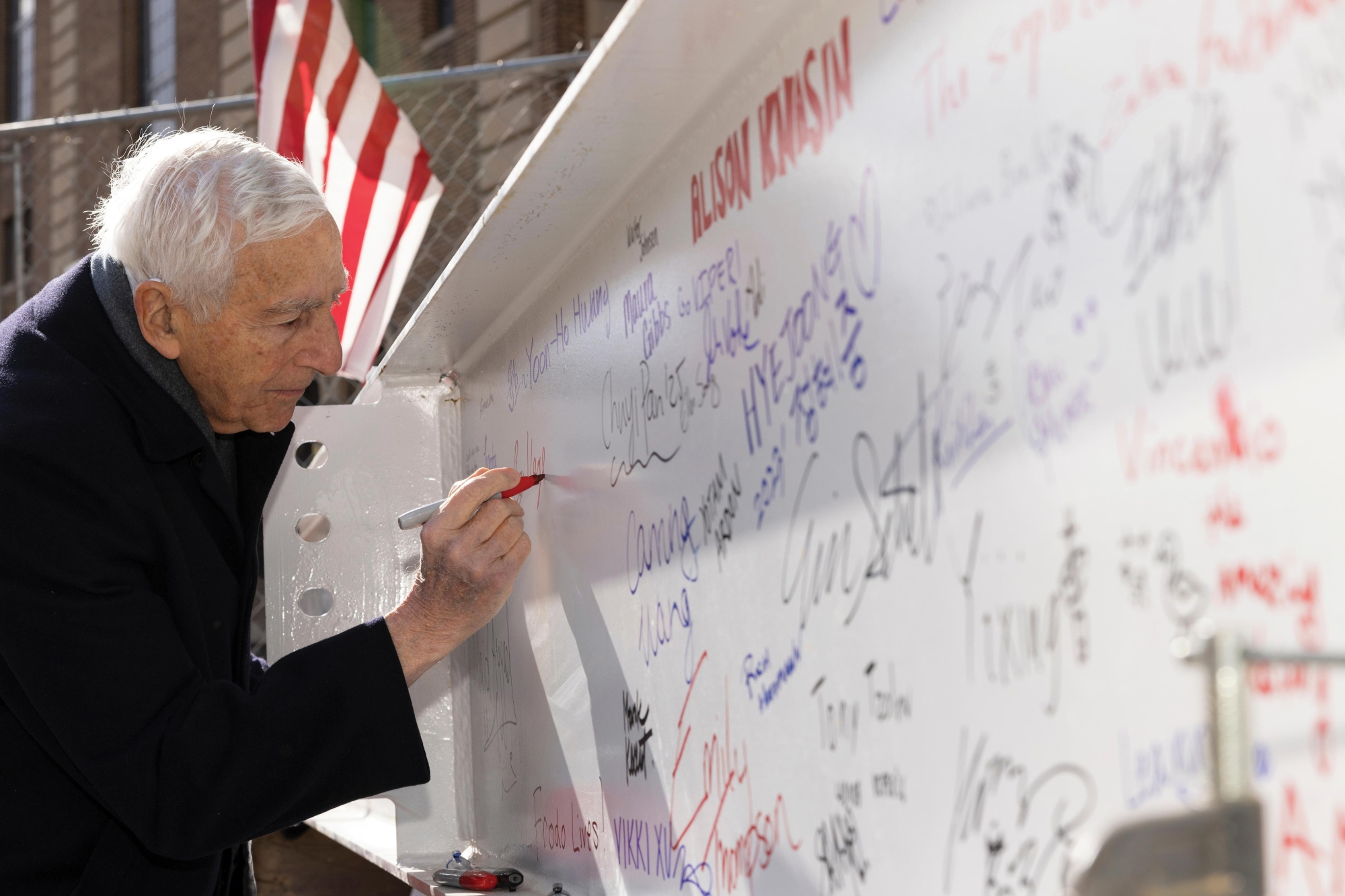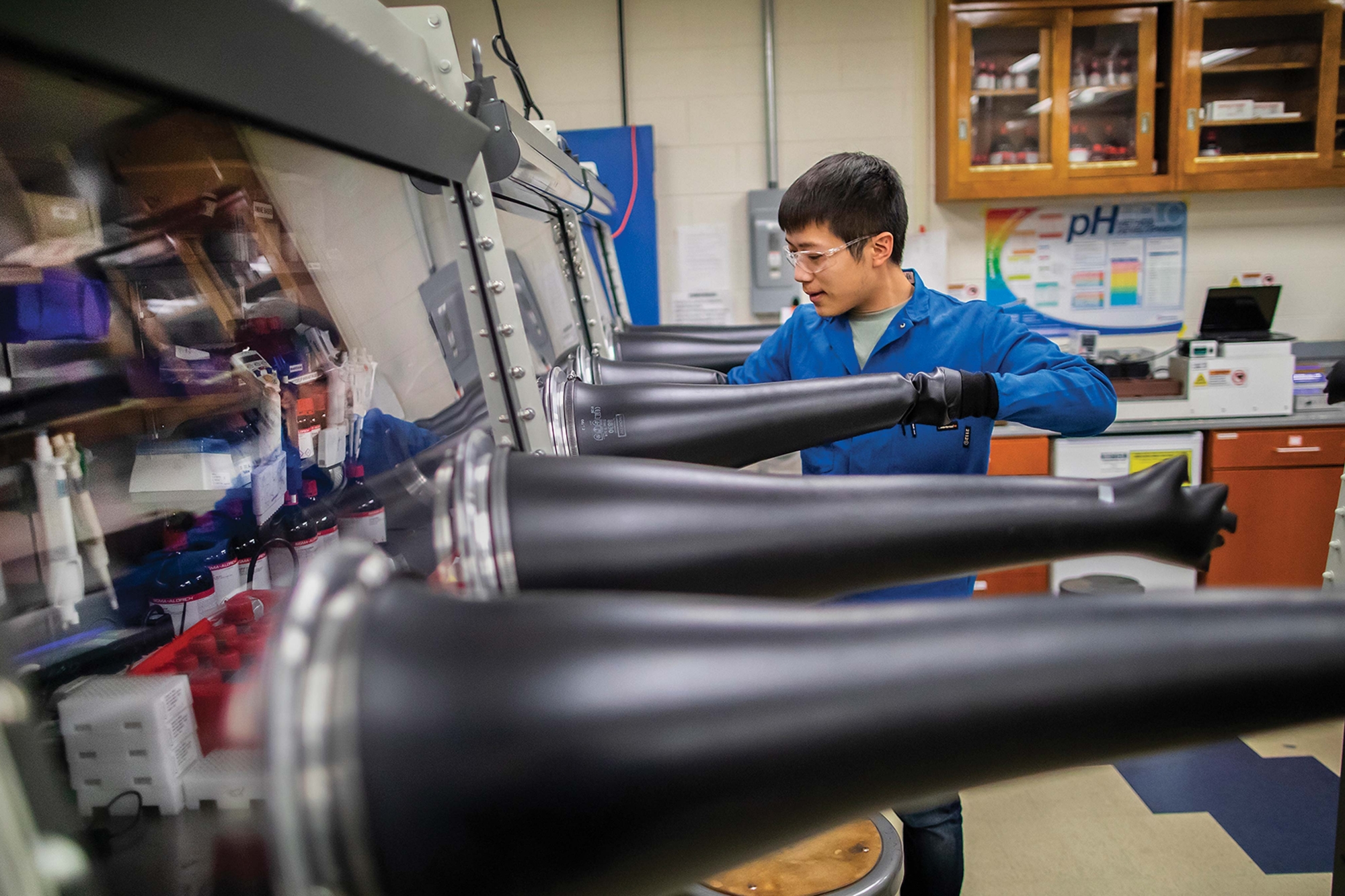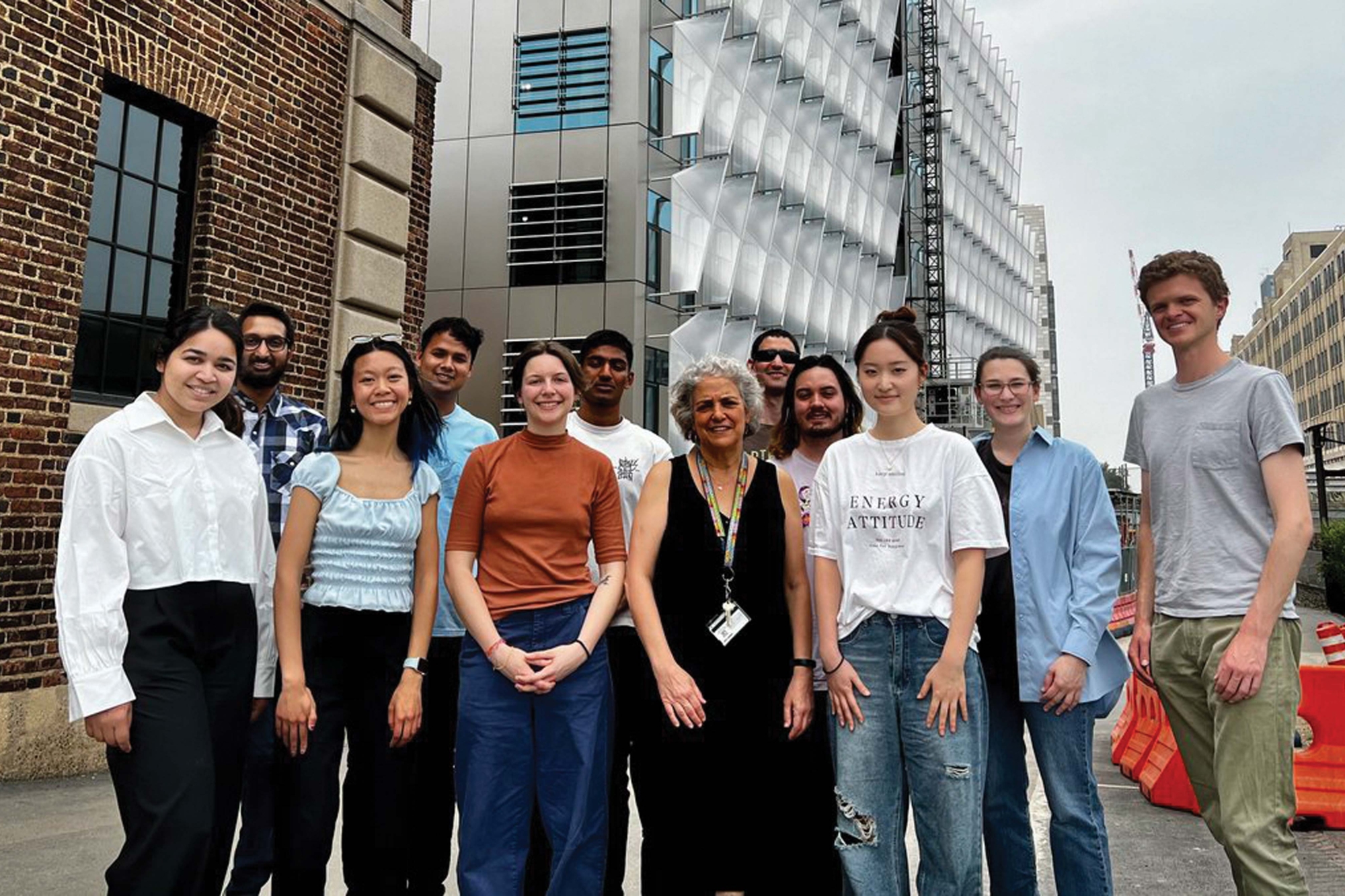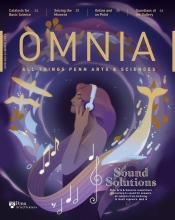Catalysts for Basic Science
P. Roy Vagelos, C’50, PAR’90, HON’99, has been connected to Penn for 75 years, starting as an undergrad. He and his wife, Diana T. Vagelos, PAR’90, recently gave Penn Arts & Sciences $83.9 million to fund science initiatives—the largest single gift ever made to the School.
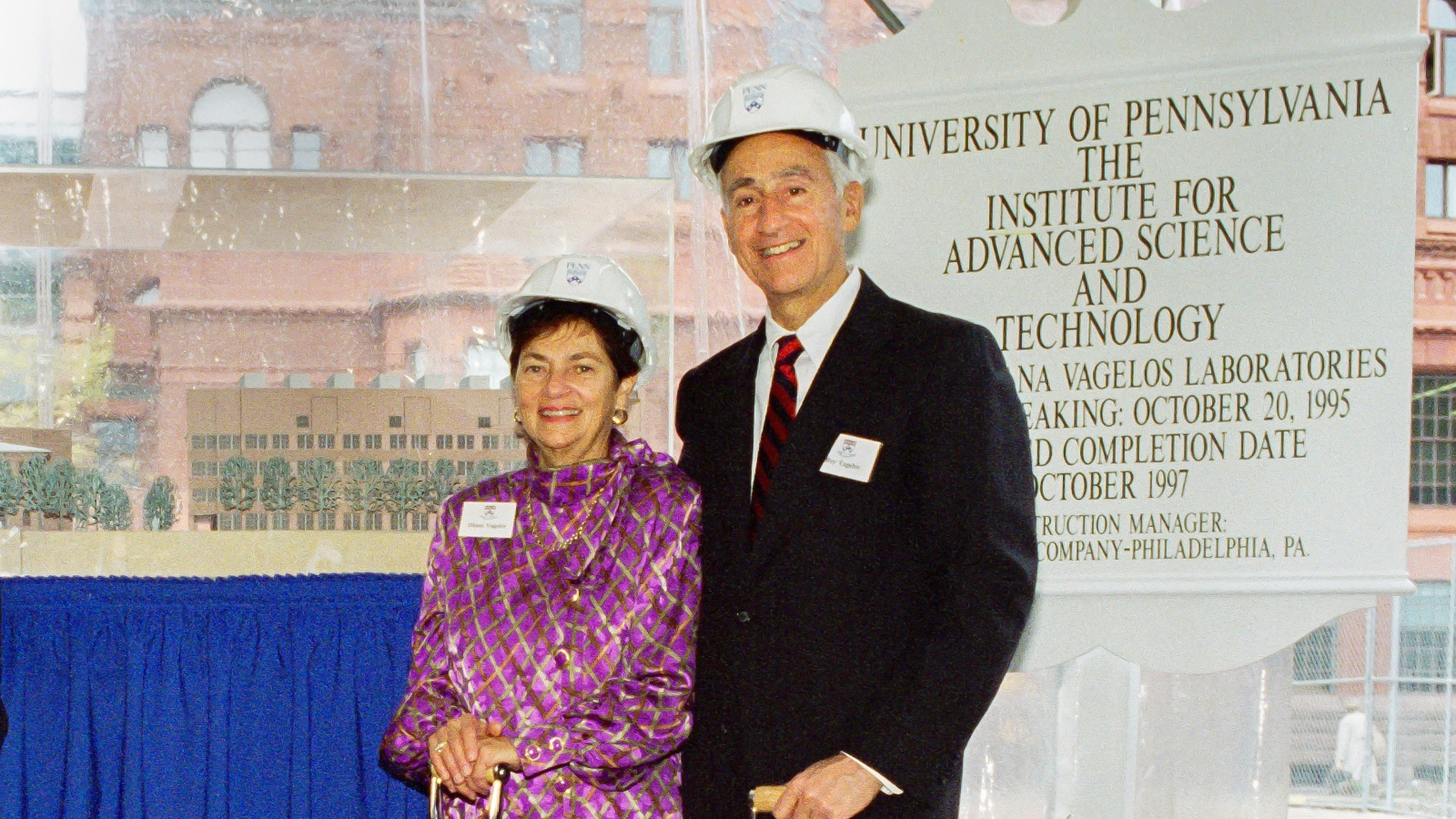
In January 2024, the University announced that P. Roy Vagelos, C’50, PAR’90, HON’99, and Diana T. Vagelos, PAR’90, made a gift of $83.9 million to fund science initiatives across the School of Arts & Sciences—the largest single gift ever made to the School and among the largest in Penn’s history.
This transformative gift includes $50 million to enhance graduate education in the Department of Chemistry, including funding 20 Vagelos Fellows. It also establishes a permanent endowment for the Vagelos Institute for Energy Science and Technology. To bolster excellence in chemistry research and teaching, the Vageloses have also directed a portion of the gift to fund their seventh endowed professorship at Penn Arts & Sciences. In addition, the gift is funding student awards honoring leaders of three undergraduate programs that carry the Vagelos name: the Roy and Diana Vagelos Program in Life Sciences and Management, the Vagelos Integrated Program in Energy Research (VIPER), and the Roy and Diana Vagelos Scholars Program in the Molecular Life Sciences.
The Vageloses’ longtime support of Penn Arts & Sciences now totals $239 million and represents an extraordinary investment in innovation and basic science. “This monumental new gift caps off the incomparable impact that Roy and Diana have had on scientific research and education at Penn Arts & Sciences,” says Steven J. Fluharty, Dean and Thomas S. Gates, Jr. Professor of Psychology, Pharmacology, and Neuroscience. “From supporting and recruiting exceptional chemists to educating future experts in top-notch research facilities and interdisciplinary undergraduate programs, we will continue to make great strides thanks to the partnership and incredible generosity of Roy and Diana.”
The campus that welcomed Roy seven decades ago as an undergraduate has experienced vast transformation—shaped in no small measure by the visionary involvement of the Vageloses.
A Passion for Science Ignited
Roy Vagelos’s noteworthy career began at Penn as a chemistry major. Following his graduation in 1950, he completed his medical degree at Columbia University. As a physician-scientist at the National Institutes of Health, he discovered a key protein in the process of lipid metabolism. He spent nine years as chair of the Department of Biological Chemistry at Washington University in St. Louis. He joined Merck & Co. as Senior Vice President for Research in 1975, later becoming CEO and leading the company through a period of stunning innovation. He is best known for leveraging Merck’s discoveries to address health needs in the developing world. During his tenure, Merck made the breakthrough drug ivermectin freely available with the goal to eliminate river blindness globally.
The connection to Penn that he formed as a top chemistry student and rower burgeoned when he became a proud Penn parent and later Chair of the Board of Trustees—a position he held from 1994 to 1999. As founding Chair of the Committee for Undergraduate Financial Aid, he galvanized support for student aid, and he and Diana personally established scholarships that support more than 20 students in the sciences every year.
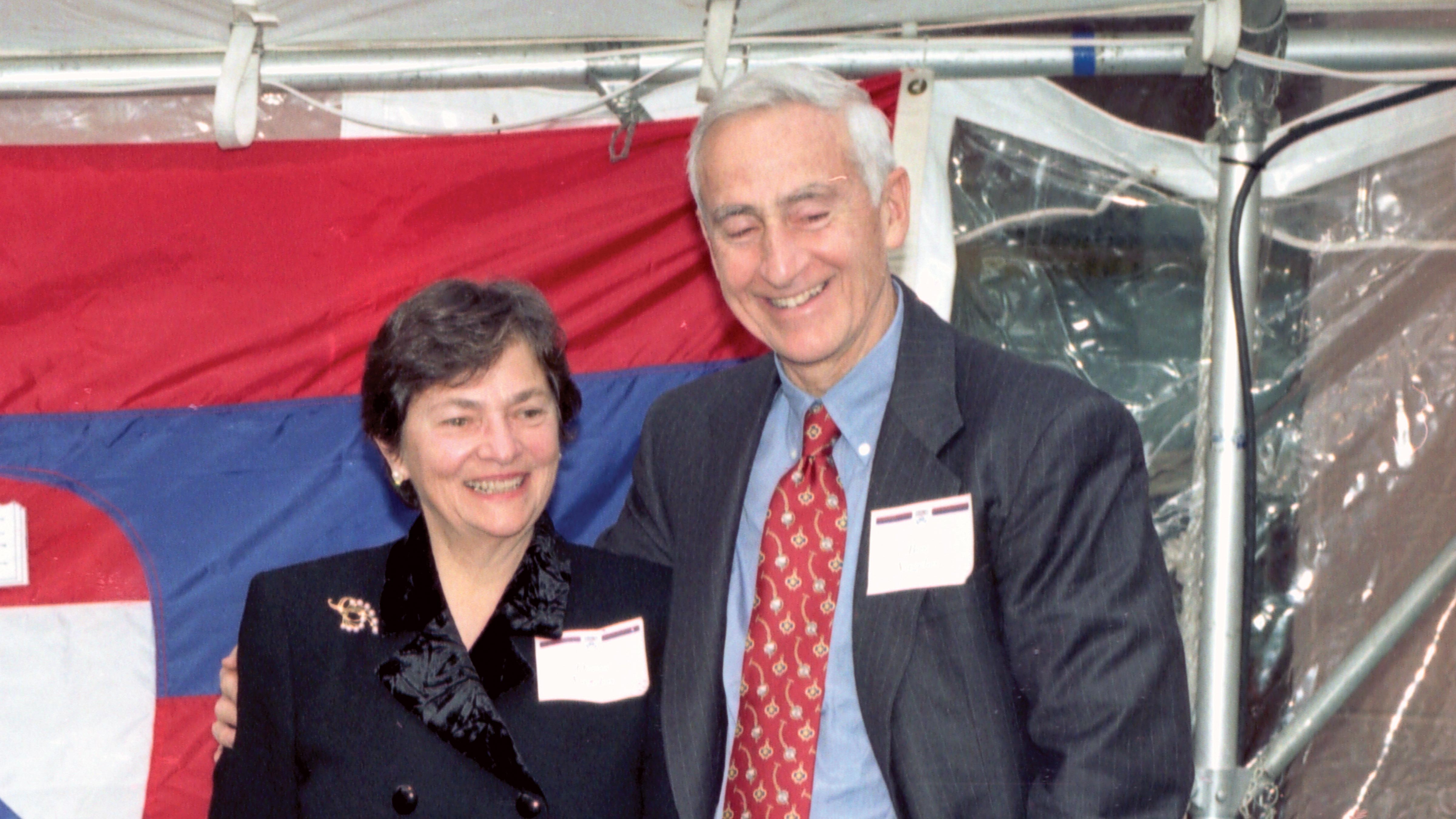
The completion of the Roy and Diana Vagelos Laboratories of the Institute for Advanced Sciences and Technology in 1997 helped Penn enter the 21st century as a modern, forward-looking research institution.
Transforming Campus and Curriculum
The Vagelos footprint spans Penn’s campus, from the first-year chemistry laboratories to the field hockey pitch to archaeological galleries. Diana, vice chair of the Board of Trustees for Barnard College, her alma mater, served Penn as a member of the Board of Advisors at the University of Pennsylvania Museum of Archaeology and Anthropology from 1996 to 2002.
But nowhere is the Vageloses’ impact more profound than on science education and research. Three dual-degree undergraduate programs carry the Vagelos name, paving the way for young minds to grow into well-rounded, forward-thinking leaders in the sciences.
Beyond philanthropic support, Roy frequently offers insight as a mentor. John Vohs, Carl V. S. Patterson Professor of Chemical and Biomolecular Engineering and VIPER co-director, cites Roy’s annual visits to meet with students as a program highlight. “Many students have commented to me about how inspiring they have found these meetings,” he says.
Dual-Degree Undergraduate Programs
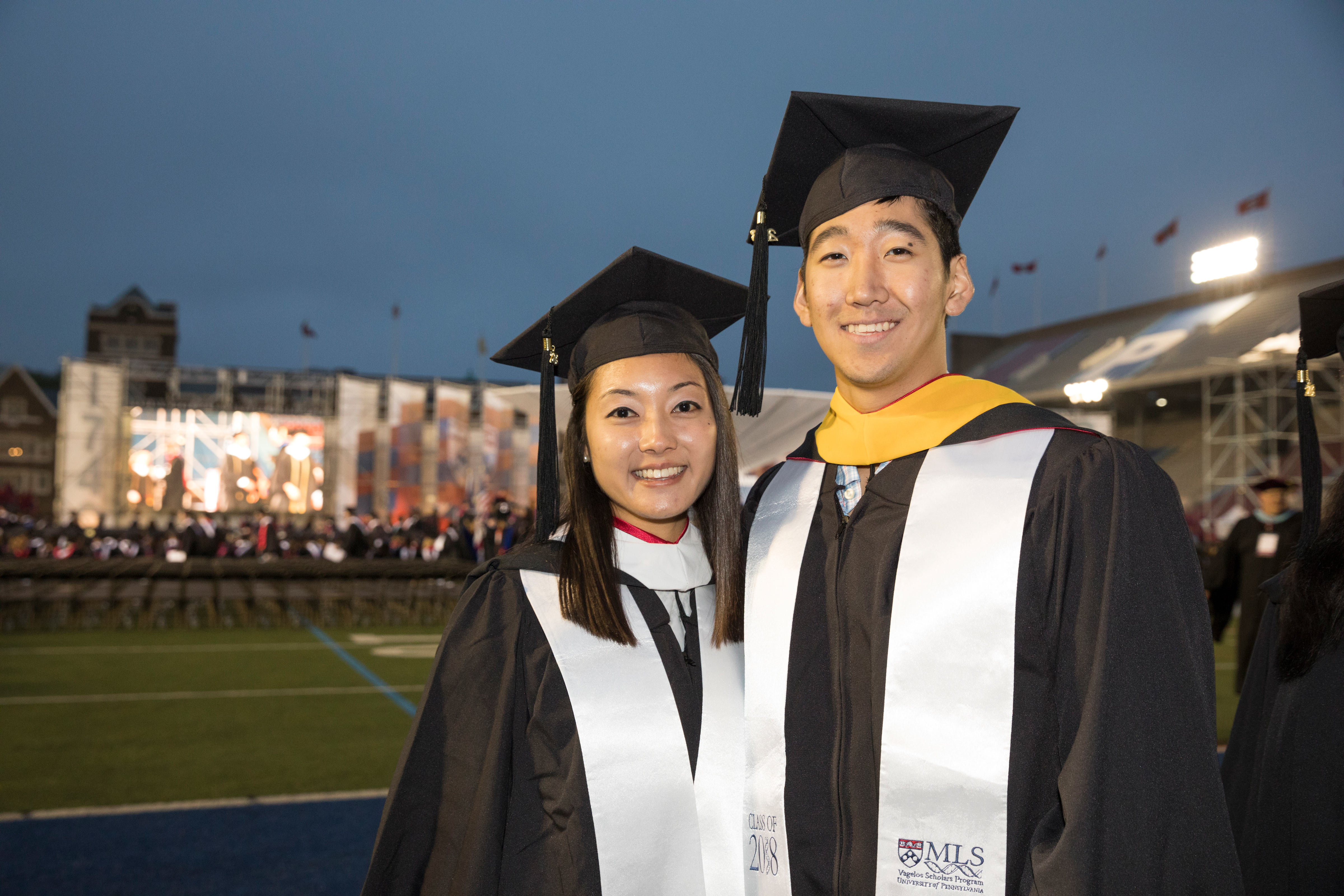
Roy and Diana Vagelos Scholars Program in the Molecular Life Sciences
An intensive program for future research scientists, the MLS program invites students to pursue two majors in the natural sciences or to submatriculate to earn a master’s degree. Since the first class of Vagelos Scholars graduated in 2002, more than 85 percent of graduates have gone on to pursue a Ph.D., MD, or combined MD/Ph.D. at the nation’s most prestigious graduate schools.
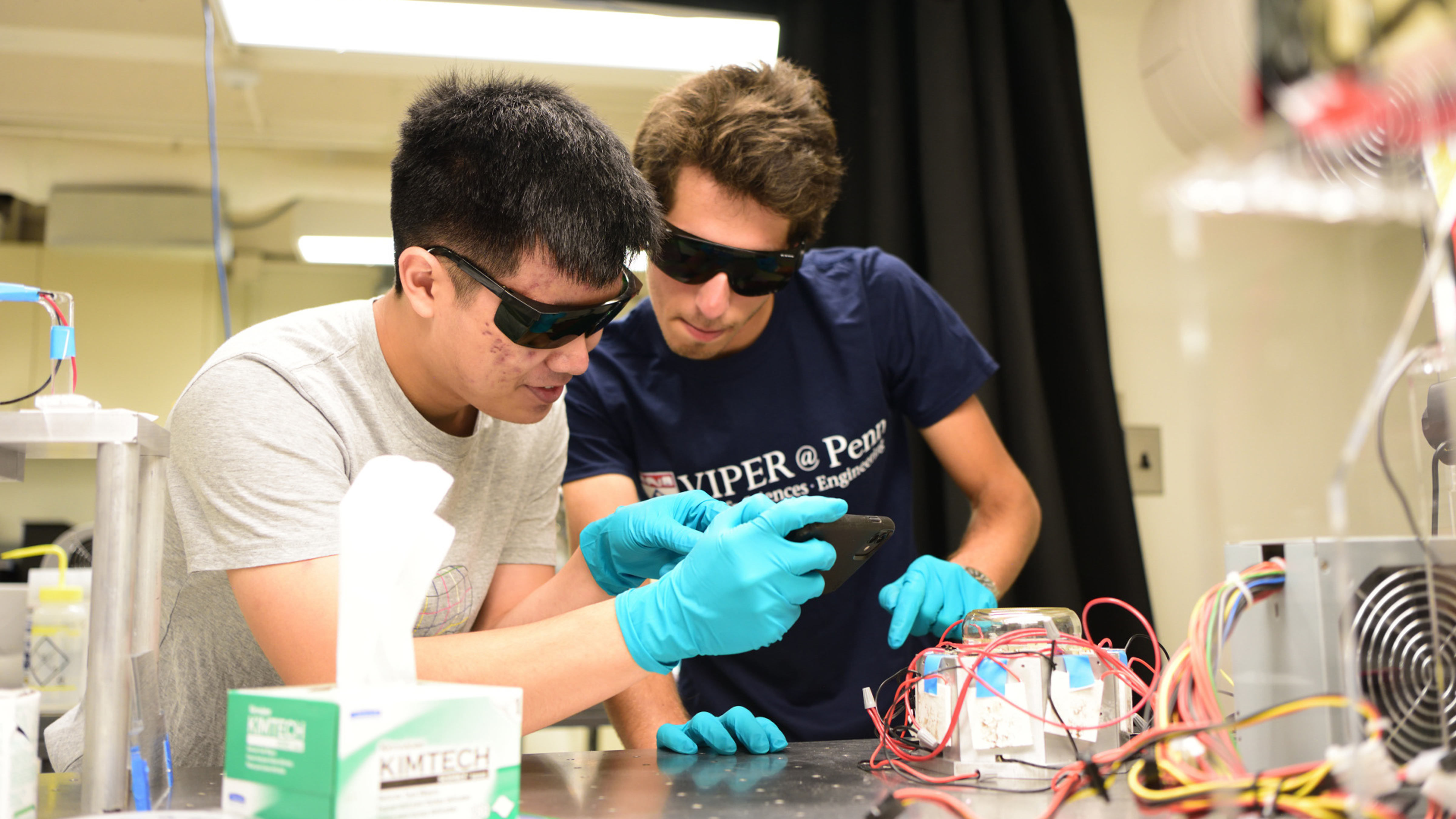
Vagelos Integrated Program in Energy Research
VIPER trains students to seek global energy solutions through dual majors in science and engineering and through immersive research experiences. Lorenzo Yao-Bate, C’24, ENG’24, was drawn to the program after working with an organization that provides solar lamps to off-grid communities in the Philippines. As a VIPER student, he is scaling up this impact through research in a lab that studies a type of light-powered flight.
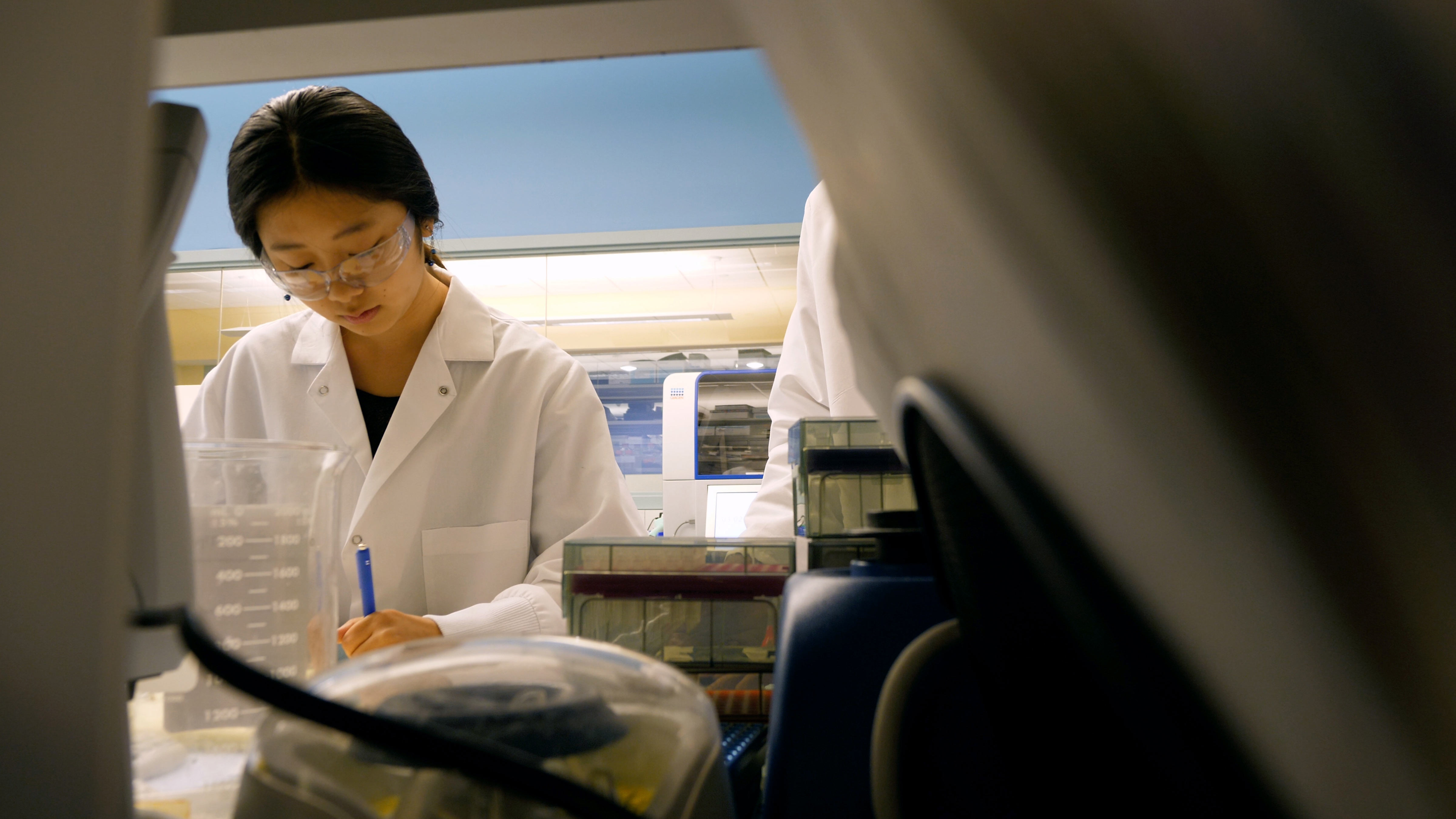
Roy and Diana Vagelos Program in Life Sciences and Management
Students in the LSM program pursue coursework and internships that cover bioscience and business. Mia Yang, C’24, W’24, spent one summer helping validate potentially novel genes in the human eye and another working with a life sciences investment team—dual perspectives that came together in her senior capstone project. “It was a culmination of everything that I learned the past four years,” she says.
“Attractive and exciting programs in the sciences can give undergraduates entrée into a world that is almost unlimited.” —Roy Vagelos
Fueling Innovation and Discovery
From his time at Washington University in St. Louis in the 1970s, Roy knows firsthand that innovative and intellectually curious scholars are essential to the success of research institutions. He and Diana have strengthened Penn’s faculty through seven endowed professorships in the sciences, provided substantial support for graduate education—a recognition of the critical importance of training the scientists of the future—and created a hub for interdisciplinary collaboration in the Vagelos Institute for Energy Science and Technology.
Cementing the future of energy research at Penn, Roy and Diana made a spectacular investment to construct a dedicated home for the Vagelos Institute and VIPER. The Vagelos Laboratory for Energy Science and Technology will be an essential incubator for scientists and engineers to collaborate on sustainable energy solutions.
Vagelos Graduate Fellows
With a substantial portion of the recent gift from the Vageloses—$50 million—being utilized to enhance graduate education, the Chemistry Department will begin admitting Vagelos Fellows this year, building to 20 named fellows.
“Supporting talented graduate students and bringing them together with the best faculty is the most promising path to breakthrough discoveries,” says Fluharty, “addressing not only the challenges that are facing us today, but ones that we have not yet imagined.”
The Vagelos Institute for Energy Science and Technology
Through founding support from Roy and Diana, the Vagelos Institute for Energy Science and Technology launched in 2016, positioning Penn as one of the premier energy research and technology centers in the nation. Today, it engages more than 35 faculty from across the University, along with postdoctoral fellows and graduate students. The recent gift from the Vageloses establishes a permanent endowment for the Institute.
“From supporting and recruiting exceptional chemists to educating future experts in top-notch research facilities and interdisciplinary undergraduate programs, we will continue to make great strides thanks to the partnership and incredible generosity of Roy and Diana.” —Steven J. Fluharty, Dean and Thomas S. Gates, Jr. Professor of Psychology, Pharmacology, and Neuroscience
